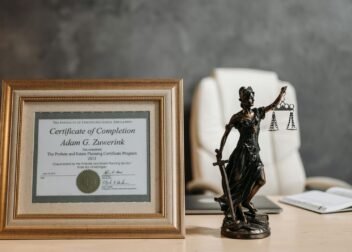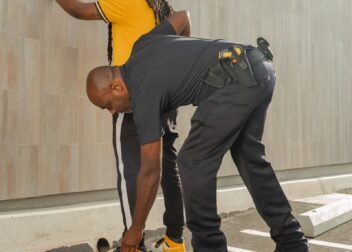Understanding Warrantless Arrests: What You Need to Know
Picture this: You’re walking out of a store when a police officer approaches and tells you that you’re under arrest. You haven’t seen a warrant—so is this even legal? Many people assume that law enforcement always needs a warrant to make an arrest, but that’s not necessarily true.
In reality, there are several situations where police can arrest someone without a warrant. Understanding your rights in these scenarios can help you navigate encounters with law enforcement and protect yourself legally. Let’s break it down.
What Is an Arrest Warrant?
An arrest warrant is a legal document issued by a judge or magistrate that authorizes law enforcement to take a person into custody. To obtain a warrant, police must present probable cause—a reasonable belief that the person has committed a crime—supported by evidence.
A valid arrest warrant typically includes:
- The suspect’s name (or a description if the name is unknown)
- The specific crime alleged
- The issuing judge’s signature
- A directive to law enforcement to make the arrest
Warrants ensure that arrests are based on legal justification, preventing unlawful detentions. However, police don’t always need a warrant to take someone into custody.
When Can Police Arrest You Without a Warrant?
There are several exceptions that allow law enforcement to make an arrest without first obtaining a warrant. These include:
1. If a Crime Occurs in an Officer’s Presence
If a police officer witnesses a crime happening—whether it’s a traffic violation, an assault, or theft—they have the authority to arrest the suspect immediately. No warrant is needed because the crime is unfolding in real time.
2. Probable Cause to Believe a Felony Has Been Committed
Even if an officer doesn’t see the crime happen, they can arrest a person if they have probable cause to believe that a felony (a serious crime like robbery or murder) has been committed. Probable cause can be based on witness statements, physical evidence, or other investigative findings.
3. Exigent Circumstances (Emergencies)
Sometimes, waiting for a warrant could result in the suspect fleeing, destroying evidence, or harming others. In these cases, officers can make an arrest without a warrant. For example:
- A suspect is about to leave the scene of a violent crime.
- Evidence is at risk of being destroyed.
- There is an immediate threat to public safety.
4. Domestic Violence Cases
Many states allow officers to make a warrantless arrest in domestic violence situations, even if they didn’t witness the incident. If there is evidence of physical injury or a credible threat of harm, an arrest can be made to protect the victim.
5. Violating Probation or Parole
If someone is on probation or parole and violates the terms of their release, law enforcement or a probation officer may arrest them without a warrant.
What Happens If You’re Arrested Without a Warrant?
If you are taken into custody without a warrant, you still have rights. Here’s what typically happens next:
- You will be booked. Your fingerprints, photo, and personal information will be recorded.
- You must be informed of your Miranda rights. If police intend to question you, they must inform you of your right to remain silent and have an attorney.
- You will see a judge quickly. In most cases, you must be brought before a judge within 48 hours, where the judge will determine whether there was probable cause for your arrest.
- You may be released or charged. Depending on the case, the judge may release you on bail, your own recognizance, or hold you until trial.
What If Police Arrest You Without Probable Cause?
If you believe you were arrested without probable cause, you may have legal options:
- Your lawyer can file a motion to suppress evidence. If your arrest was unlawful, any evidence obtained may be thrown out in court.
- You may file a civil rights lawsuit. Under federal law (42 U.S.C. § 1983), you can sue for wrongful arrest if law enforcement violated your constitutional rights.
- Your case could be dismissed. If the arrest was improper, prosecutors may drop the charges against you.
If you’re facing criminal charges, consulting with an experienced criminal defense attorney is crucial.
Common Myths About Arrest Warrants
1. “Police always need a warrant to arrest someone.”
Not true. As discussed, officers can arrest someone without a warrant in various situations, such as when a crime happens in their presence or when there’s probable cause.
2. “If I wasn’t read my Miranda rights, my case will be dismissed.”
False. Miranda rights only apply when police conduct custodial interrogations. If you weren’t being questioned, failure to read your rights doesn’t automatically invalidate the arrest.
3. “Police can arrest me without a warrant just because they don’t like me.”
No. Officers must have probable cause or witness a crime to make a lawful arrest. If you believe you were arrested without legal justification, consult a lawyer.
Frequently Asked Questions (FAQs)
1. Can I refuse to go with the police if they don’t have a warrant?
If officers have probable cause or another legal justification, refusing to comply could lead to additional charges like resisting arrest.
2. What should I do if I’m arrested without a warrant?
Stay calm, remain silent, and ask for a lawyer. Do not resist or argue with officers, as this could make things worse.
3. How can I check if there’s a warrant for my arrest?
You can contact your local courthouse, check online databases, or consult an attorney to see if a warrant has been issued in your name.
4. Can police enter my home without a warrant to arrest me?
Generally, no—unless they have exigent circumstances (such as chasing a fleeing suspect or preventing harm). Otherwise, they need either a warrant or your consent.
5. Can I sue if I was arrested without probable cause?
Yes, if your constitutional rights were violated, you may be able to file a lawsuit for wrongful arrest or police misconduct.
Final Thoughts: Know Your Rights
While law enforcement can arrest people without a warrant under certain circumstances, they must still follow legal procedures. Understanding your rights can help you handle police encounters wisely and take action if your arrest was unlawful.
If you’re facing an arrest or criminal charges, seeking legal counsel is essential. An experienced defense attorney can help protect your rights and build a strong case in your defense.
Sources & References
- American Bar Association – Arrest Procedures
- Cornell Law – Probable Cause & Arrests
- FindLaw – When Police Need an Arrest Warrant
Get the Compensation You Deserve After Your Accident
If you’ve been injured in a car crash that wasn’t your fault, don’t settle for silence or confusion. Lawayer.com connects you with› experienced attorneys who can fight for your rights and help you recover what you’re owed. Time matters—take the first step now



